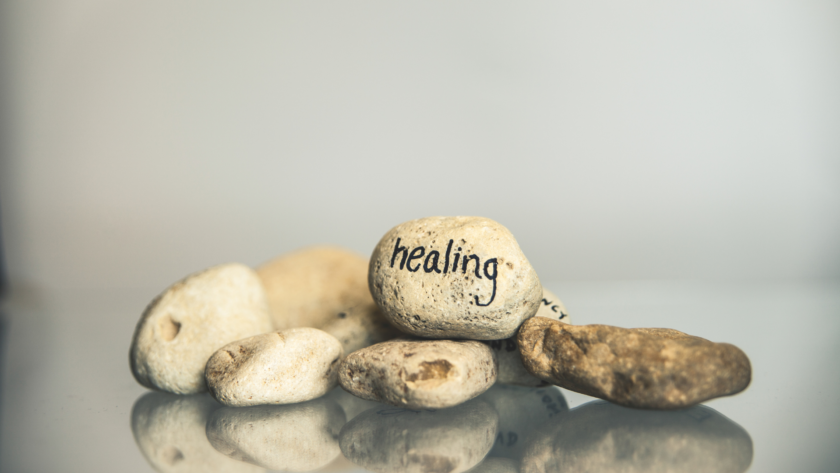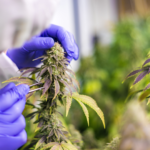When it comes to healing and recovery, nutrition plays an important role. What we eat, from hospital stays to chronic conditions and diseases, can significantly influence our health outcomes. In this blog post, we’ll explore the connection between nutrition and healing, looking at how different diets can benefit those undergoing treatment for various illnesses and injuries.
Proper Nutrition in the Healing and Recovery Process
Nutrition plays a vital role in healing and recovery. When the body is injured or ill, it needs extra energy and nutrients to repair itself. Proper nutrition helps the body to heal and recover more quickly and effectively.
There are a few things to keep in mind when considering nutrition for healing and recovery:
Eat a Variety of Nutrient-rich Foods
Whole grains, fruits, vegetables, lean proteins, and healthy fats are all essential for healing and recovery. Eating various foods will help ensure our body gets the nutrients it needs.
Seek Professional Advice if Needed
Especially when you’re battling a chronic condition, or have to increase your nutritional intake to recover, you’d want to watch what you eat. If you’re having a hard time getting your diet right, it would be a sensible decision to consult a nutritionist (like the ones listed on We Are Nutrition) as they could prescribe you a diet based on your needs.
Consider Supplements
Supplements can be helpful if we need more nutrients from our diet. However, it is always best to get nutrients from food first. Speak with a doctor or a registered dietitian before taking any supplements.
Drink Plenty of Fluids
Staying hydrated is crucial for healing and recovery. Water is the best option, but unsweetened tea or coffee can also be beneficial. Avoid sugary drinks like soda, as they can hinder recovery by causing dehydration and blood sugar swings.
Get Enough Rest
Sleep is essential for healing and recovery. Aim for 7-9 hours each night. If one is having trouble sleeping, try to create a calming bedtime routine or speak with a doctor about possible solutions.
Avoid Drugs and Alcohol
Drugs and alcohol can interfere with healing and recovery by impairing the body’s ability to repair itself or causing further damage to the body. If we need help quitting, talk to a doctor or a substance abuse specialist.
Avoid Sugary Foods and Drinks
Consuming too much sugar can lead to inflammation and spike blood sugar levels, which can impair healing. It’s best to limit sugary foods and beverages like candy, cookies, cakes, soda, and juice during recovery. Furthermore, apart from impacting your recovery, excessive sugar intake can also cause new problems such as tooth decay and cavities. To recover from these issues, you may have to opt for dental root canals, a procedure aimed at removing infected or damaged pulp tissue within the tooth, often necessitated by the decay and cavities exacerbated by excessive sugar consumption. To avoid this, it is best to choose whole, unprocessed foods instead.
Following these tips can help ensure that our body has the nutrition it needs during the healing and recovery.
How Nutrients Help the Body Heal
To heal, our bodies need certain nutrients to function correctly. These include vitamins, minerals, amino acids, and antioxidants.
Vitamins are essential for many different biochemical reactions in the body. For example, vitamin C is necessary for producing collagen, which is vital for wound healing. Vitamin A is also needed for cell growth and regeneration.
Minerals are also involved in many different biochemical processes in the body. For example, iron is necessary for producing hemoglobin, which carries oxygen to cells. Copper is needed for the production of collagen and elastin. Zinc plays a role in immune function and tissue repair.
Amino acids are the building blocks of proteins. They are necessary to produce enzymes, hormones, and other molecules involved in numerous biochemical processes in the body.
Antioxidants help protect cells from damage caused by free radicals. Free radicals are unstable molecules that can damage cells and lead to inflammation. Antioxidants neutralize free radicals and help keep cells healthy.
The right mix of nutrients is essential for optimal health and healing. When our bodies don’t get enough of these vital nutrients, we may experience fatigue, poor immunity, slow wound healing, and increased inflammation.
Different Types of Healing Diets
There are lots of different diets out there that can help you feel better and be healthier. But to pick the one that’s right for you, it’s a good idea to talk to a Montreal nutritionist or someone close to you who can help. They can give you advice on which diet might be best for you. Some of the common healing diets they might suggest include:
The Paleo Diet
The Paleo diet is based on the premise that humans should eat the same foods that our ancestors did during the Paleolithic era. This diet typically includes lean meats, vegetables, fruits, and nuts.
The Mediterranean Diet
The Mediterranean diet is based on the traditional eating habits of people from countries like Greece, Italy, and Spain. This diet emphasizes fresh seafood, olive oil, fruits, vegetables, and whole grains.
The Vegan Diet
The vegan diet avoids all animal products, including meat, dairy, and eggs. This diet typically includes plenty of fruits, vegetables, legumes, and whole grains.
The Raw Food Diet
The raw food diet consumes only uncooked and unprocessed foods. This diet typically includes a lot of fruits and vegetables and some raw nuts and seeds.
Incorporate Healthy Foods Into Diets During Recovery
Like most people, recovery is a time to rest and let our bodies heal. However, nutrition plays an essential role in healing and recovery. What we eat can impact how quickly our body heals, how well it functions, and how much energy we have.
There are many ways to incorporate healthy foods into our diet during recovery. Here are a few ideas:
- Eat plenty of fruits and vegetables. Fruits and vegetables are packed with nutrients that help our bodies heal and recover. Aim for at least five servings per day.
- Incorporate lean protein into the diet. Lean protein helps repair tissue and build muscle. Good lean protein sources include chicken, fish, tofu, and legumes.
- Drink plenty of fluids. Staying hydrated is essential for many bodily functions, including the immune system and wound healing. Aim for 8-10 glasses of water per day.
- Avoid processed foods and sugary drinks. These foods can delay healing and lead to further inflammation in the body. Instead, opt for whole foods and unsweetened beverages.
- Get creative with snacks. Healthy snacks can help keep our energy levels up while providing essential nutrients. Try nuts, yogurt, hummus, or fruit and nut bars.
By incorporating these healthy foods into our diet during recovery, we can give our body the nourishment it needs to heal and recover quickly.
Eating Healthily for Faster Healing and Recovery
The role of nutrition in healing and recovery is an important one that should be considered. Eating a balanced diet, with plenty of fruits, vegetables, proteins, and other foods that provide the necessary vitamins and minerals, can help to speed up the healing process.
Additionally, drinking plenty of water and getting enough rest can help ensure that our body has what it needs to heal itself properly. Considering these steps can make a difference when recovering from injury or illness.




